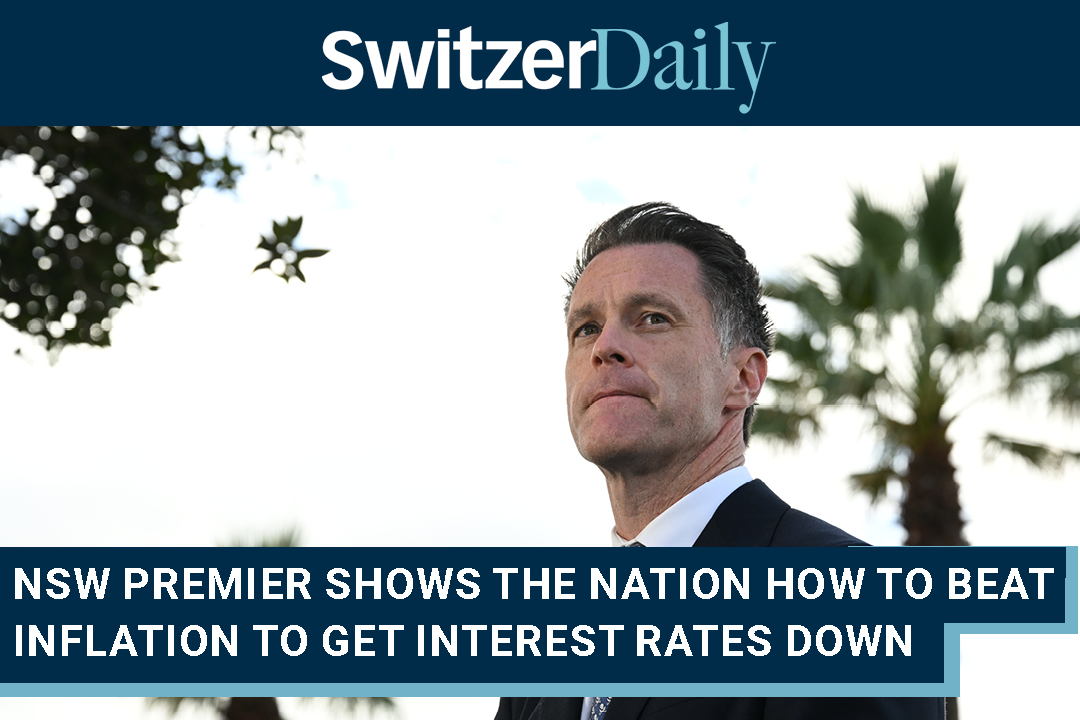

The greatest threat to our economy is no longer the current inflation problem, which is falling and hopefully tomorrow’s inflation reading for April will show that again. No, the real worry is the rising wage demands that will make future inflation remain high, which will keep interest rates high and then lob us into recession.
That’s why the new NSW Premier Chris Minns has made a great start as a Labor leader slapping a two-year wage ban on politicians and top public servants, which the Daily Telegraph tags as “fat cats”.
Don’t be mistaken. If inflation is sustained at high levels (economists call it sticky inflation), then the central banks will find it hard to reduce interest rates. They could stop raising them, but we’ll see the top cash rate with a 4% plus number, and that could be disastrous for a lot of home loan borrowers and small businesses. But not just small businesses, as we’ve seen big businesses either go broke or fall into administration because rising rates were faster and much steeper than their business plans expected.
In recent times we’ve seen the Albanese Government back a 7% minimum wage rise, biggish rises for ABC staff, other public servants and aviation workers.
Aged care workers have a 15% pay rise happening and childcare workers are looking for a 25% pay hike. Even though they are over a number of years, they are coming, as the RBA is trying to beat inflation down to a 2-3% band. Based on quarterly numbers, our last annual inflation rate was 7%, which was down from 7.8%. So, there is progress, but not enough to make the central bank stop raising rates any time soon.
A pause in June is expected as overall economic data is making that possible, but RBA boss Dr Phil Lowe, who fronts a Senate Economics committee this week in Canberra, is bound to mention his concerns about wages spiking.
Only four days ago, Dr Phil warned Albo and his team about rising wages. This is how the AFR’s Phil Coorey reported it: “Reserve Bank of Australia governor Philip Lowe has warned federal Labor MPs that generous wage rises they were backing would make inflation worse, unless they were accompanied by increases in productivity, in what sources said was a series of tense exchanges this week”.
Of course, no one can be surprised that Labor would want to reward its long-suffering supporters, after being in the political wilderness since the country thought Tony Abbott was a better PM than Kevin Rudd in 2013. But if they want to stay there more than one or two terms, they must be seen as responsible economic managers.
Backing wage rises that drive up costs and inflation unrelated to rises in worker productivity (that drive costs down) will sustain inflation and high interest rates. When that happened in the late 1980s, we wound up in a deep recession where unemployment went over 10%.
This is why the actions of Chris Minns is one you’d expect of a good leader. His wage freeze will save the State’s bottom line $250 million and the Tele’s James O’Doherty says thousands of public servants earning on average $270,000 a year will be hit, and 15% of them will be shown the door! Meanwhile politicians on a base salary of $172,576 will also see their pay frozen for two years, and Mr Minns is set on shrinking public outlays by $619 million.
O’Doherty explains that under the Coalition, the number of top public servant executives “exploded by 419 per cent…from 708 in 2010 to a whopping 3,680 in 2021.”